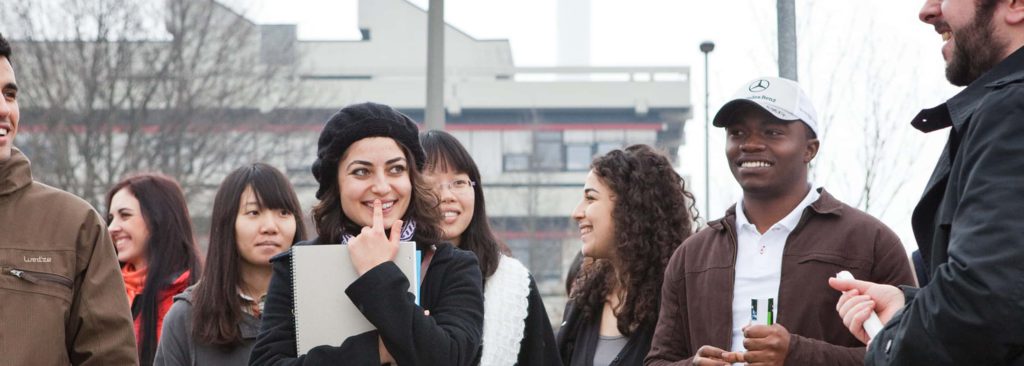
M. A. Digital Media and Society
This M.A. program qualifies students for decision-making positions in the datafied society
The program has a strong focus on theory and research. It offers methods training, hands-on research seminars with professors, and also a wide range of practice-focused courses with partners from the media industry and business.
The M.A. Digital Media and Society (DMS) is an interdisciplinary programme focusing on the digitalisation and datafication of contemporary societies. Digital media and data today are deeply integrated into our daily and professional lives. As part of these processes, the role of media and communication devices, and what we actually understand by media and communication is profoundly changing. The DMS program is situated at the leading edge of these developments, including strong research and media practice elements. It qualifies students for decision-making positions in a datafied society. Our alumni today shape the digital transformation in the media and tech industries, and work in various capacities within businesses, NGOs and governmental institutions.
Quick Info
- Title on graduation: Master of Arts (M.A.)
- Teaching language: English
- Fees: No tuition fees, only administration fees
- Program duration: 2 years (full time)
- Program start: Early October
- Application period: February 01 – March 15
Get to know the Program
Program profile
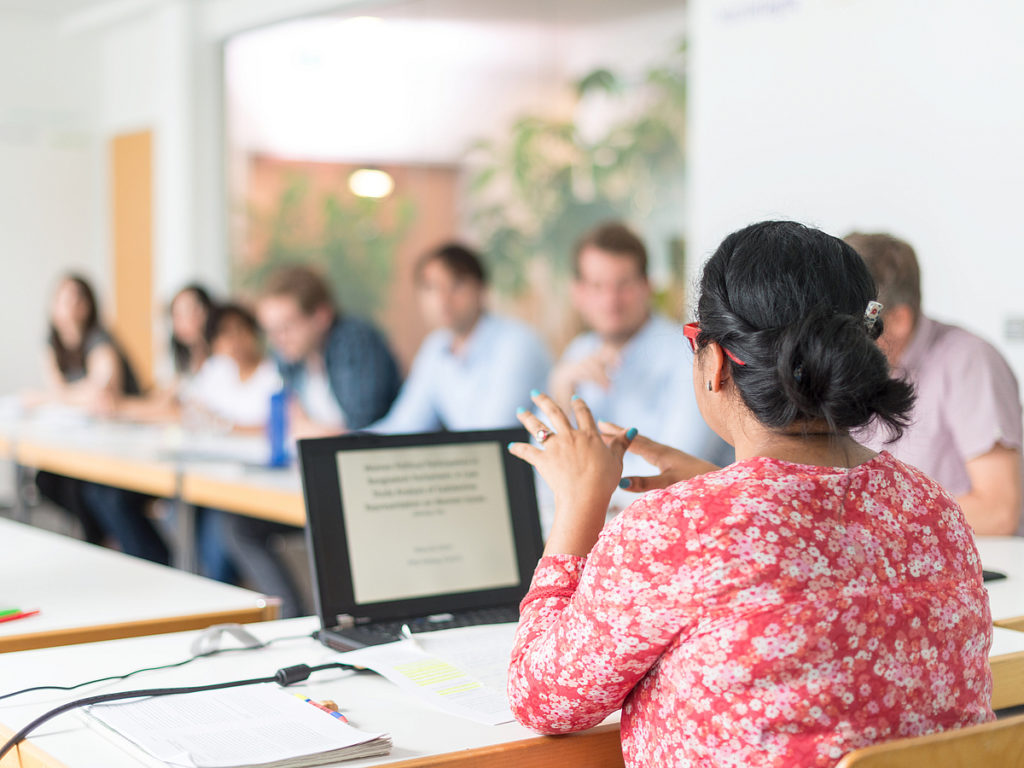
Interdisciplinary
The M.A. Digital Media and Society is interdisciplinary at its core. The faculty consists of professors and postdocs ranging from media and communication and cultural studies, to computer science, education, film studies, history, and religious studies. This diversity enables the program to provide a holistic perspective on digitalisation and datafication processes and their multiple impacts on social life. Students also have the opportunity to attend courses in other M.A. programs as part of their education.
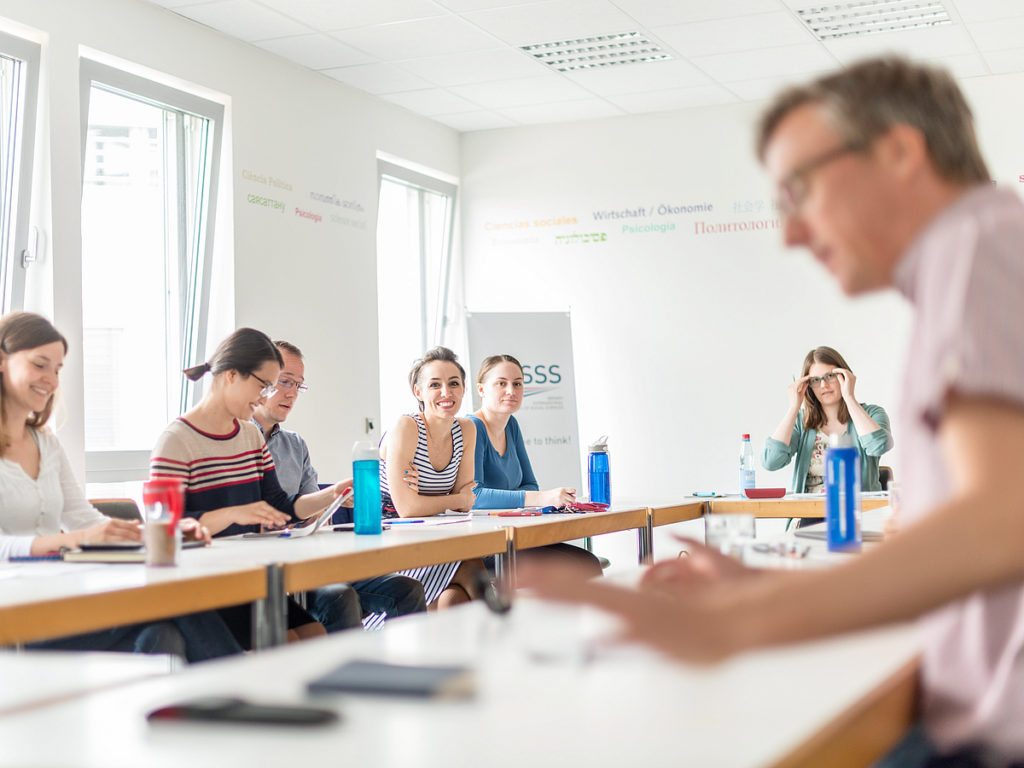
Research Focus and Methods Training
Students of the M.A. Digital Media and Society receive intense research methodology education with a hands-on approach along with theoretical input. The curriculum aims to enhance students’ competencies in both qualitative and quantitative methods. In a full-year research seminar students develop and work on their own research projects in small groups with tight supervision by professors.
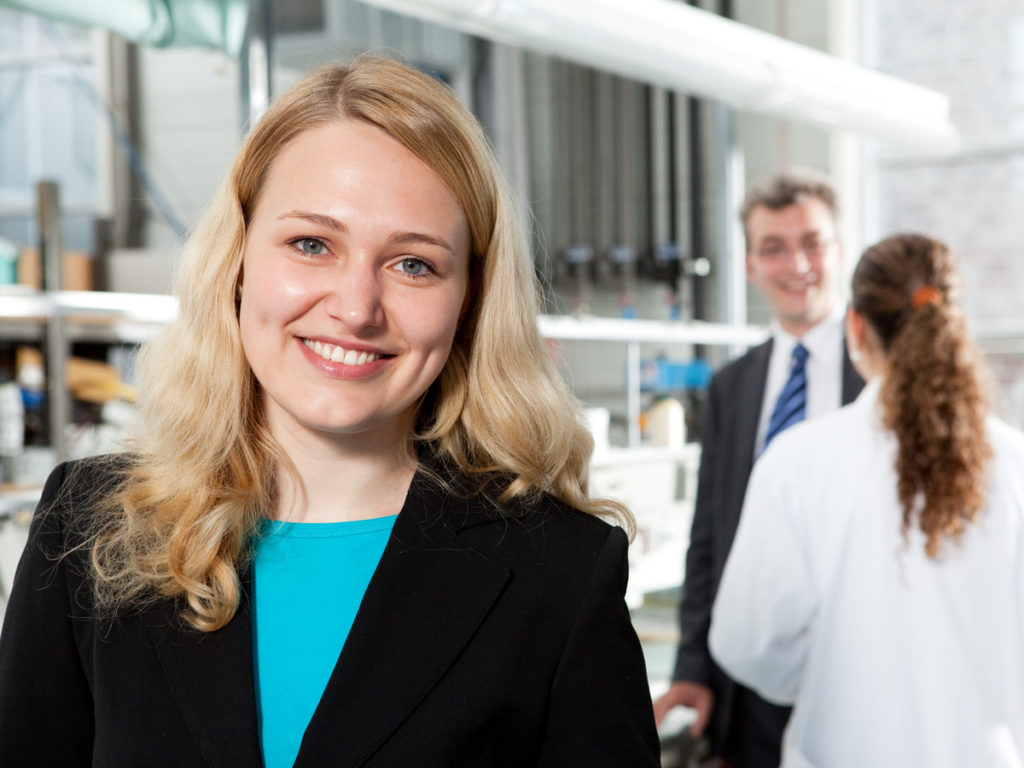
Career Training
The M.A. Digital Media and Society qualifies students for decision-making positions in a datafied society. Already during your M.A. we support your career with internships and media practice courses being part of the program. Students build professional experience, form networks for their future professional life, and develop their practical skills to be used for individual or organisational purposes. Our former students today shape the digital transformation in the media and tech industries, and work in various capacities within businesses, NGOs and governmental institutions.
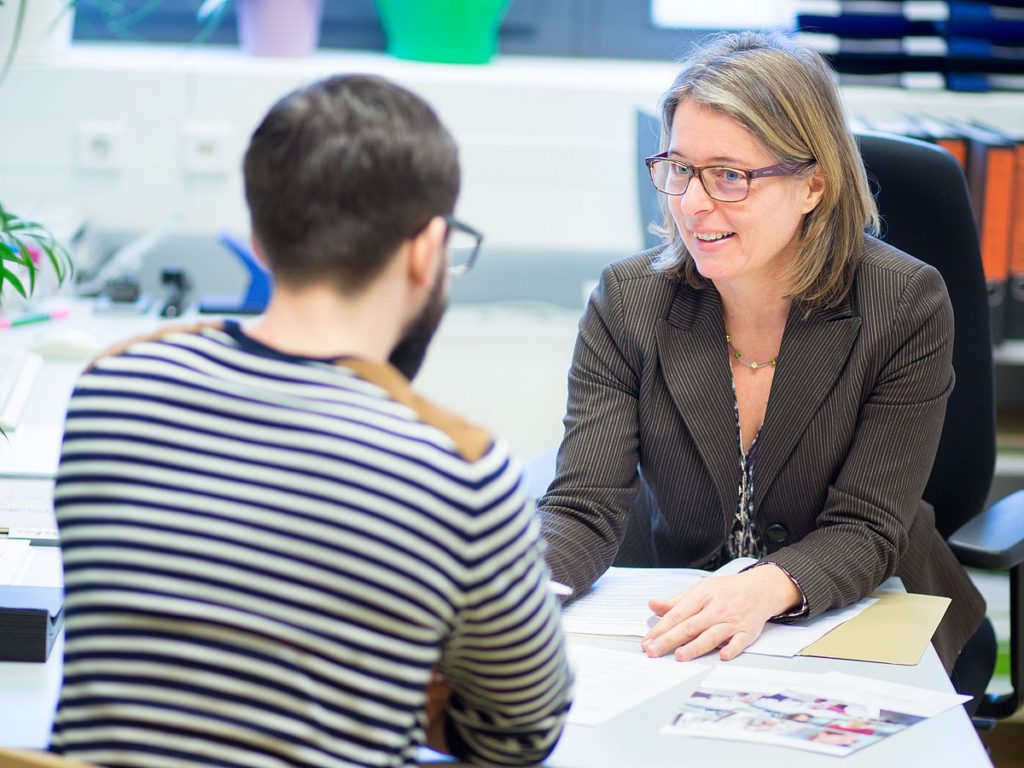
Mentoring
High level mentoring and supervision is a top priority for us. The DMS includes a mentorship program: each student is mentored by a professor who offers regular one-on-one conversations and accompanies the student throughout the program. The mentorship program aims to ensure that students have spaces and opportunities to articulate individual and educational problems and questions, in order to mitigate negative impact on their educational careers. Mentors also advise students regarding broader aspects of education and career trajectories.
Program Structure
The M.A. in Digital Media and Society is a 2-year full-time program. We encourage students to integrate a semester abroad or an internship into their studies.
The first semester serves to deepen knowledge in the field of digital media and the datafied society in particular. It also offers initial orientation in the area of digital media practice, which can be further developed in the following semesters. The goal of this semester is to develop a shared conceptual understanding and apparatus.
The focus of the second semester is on (digital) methods. Not only is the methods-training module localized in this semester, but also the beginning of the two-semester research seminar with the development of an empirical student project. Parallel to this, the second semester serves to explore other areas of digital societies in depth, with particular emphasis on questions arising from processes of deep mediatization and datafication.
The central focus of the third semester is on research practice. While students conduct the data collection and analysis as part of their research seminar; they also work on an independent study project. At the same time, there is an in-depth study of digital literacy. In addition, the media practical elements take place in this semester and, if applicable, the voluntary media-practice internship can be undertaken in this semester. Students build up and deepen contacts with companies and institutions that qualify as potential employers. The goal is to facilitate swift entry into professional life after graduation.
The fourth semester has a targeted focus on completing the program, i.e. on writing the master’s thesis and preparing for its defense.
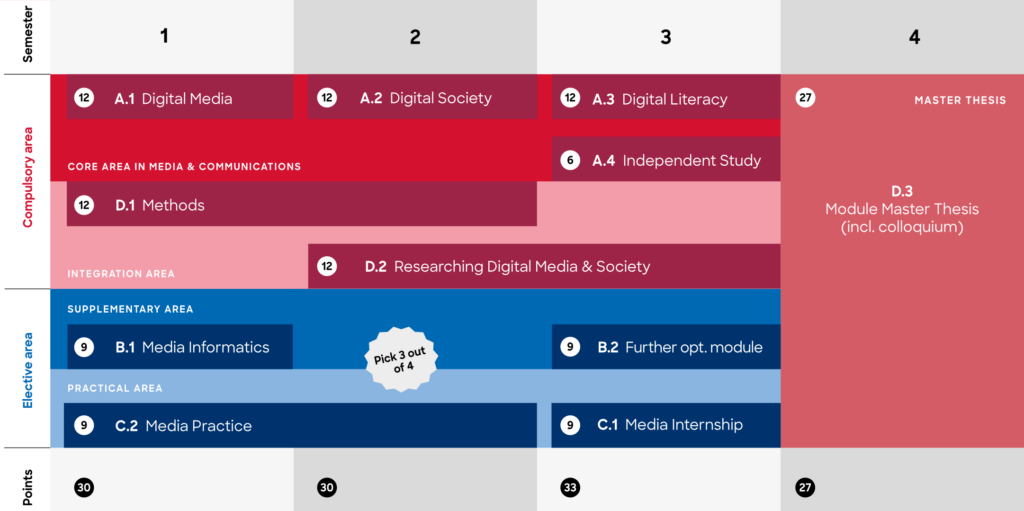
Admissions and Fees
Qualifications
Admission to the M.A. program requires a BA with substantial elements of communication and media studies, and English language skills at C1 level.
More details: Admission Regulations
Fees
No tuition fees.
There is an administrative fee of €400 per semester, which already includes a flat rate ticket for public transport throughout Germany.
Application Procedure
Application via http://www.uni-bremen.de/en/master.html between February 01 and March 15 for in-take in the next academic year (starting early October). In addition to formal certificates, we ask you to submit a motivation letter written in English (max. 2 pages) that articulates why you wish to be admitted to the M.A. Digital Media and Society at University of Bremen.
International
International Profile and Students
The M.A. program Digital Media and Society has a strong international profile. It is fully taught in English, and the Centre for Media, Communication and Information Research (ZeMKI), which hosts the program, offers a rich and diverse research environment to support your studies.
International Study Exchange
Our students have plenty of opportunities to integrate a study period abroad during this M.A. program. We have partnerships with dozens of universities in Europe and beyond, ranging from Aarhus to Barcelona, and from Istanbul to Zurich. In addition, students from these partner universities routinely enjoy study periods with us in Bremen adding even more to the international culture of the study program.
More info on International Study Exchange
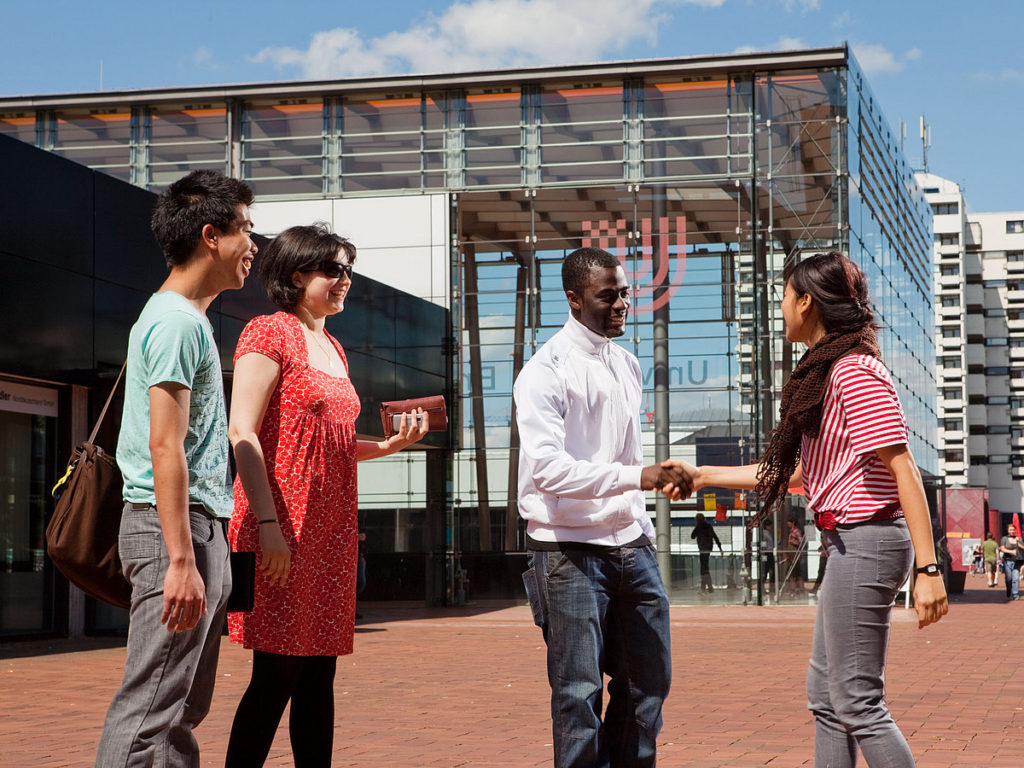
Introductory Events
Our program offers an Orientation Week at the beginning of each winter semester. During the Orientation Week, students are informed about the curriculum and the structure of the program, and are introduced to the university, the campus, and life in Bremen with the help of senior students.
The schedule for the upcoming Orientation Week will be published a few weeks before the start of the semester:
FAQs
Admissions and Eligibility
What are the eligibility criteria for admission to the program?
To be eligible for admission, you must demonstrate:
- A prior university degree in one of the following courses of study:
- Communication and Media Studies,
- Cultural Studies,
- Digital Media,
- or in a closely related field, with at least 180 credit points (CP) under the European Credit Transfer and Accumulation System (ECTS) or equivalent coursework with similar content.
- A minimum grade of 2.3 as the overall grade of the previous degree or the average grade achieved at the time of application (at least 130 CP)
- At least 40 CP earned in communication and media studies, social sciences, research methodology, studies of journalism, content research, or media use, reception, and effect research.
- English language skills at least equivalent to level C1 of the Common European Framework of Reference for Languages (CEFR) documented with an appropriate language certificate, or either a higher education entrance qualification or last university degree conducted entirely in English
You can find a full list of admission requirements in our program’s admission regulations.
Officially, the admission committee and the Student Office are both responsible for evaluating applications. The faculty members cannot process preliminary eligibility checks, so we kindly ask that you do not address such inquiries to the program team. If you think that you meet the admission requirements, we look forward to receiving and reviewing your application.
Can I apply for the program, if my first university degree is not media-related, but I am interested in studying media studies in my post-graduate education?
Generally, the program is geared toward students with a previous degree in media and communication studies. Please also review the information on admissibility in the Admissions Regulations document.
In case of a strong interest in the program with signs of excellent studentship, the selection committee might consider interdisciplinary students or students from other departments. So, if you lack sufficient CP in media studies or a degree in this area, you should clearly express your reason for interest in the program in your motivation letter. Nevertheless, it is of course never guaranteed that it would be enough.
Please keep in mind that the formal requirements are always prioritized, but depending on the candidate pool, a possible decision for such cases can differ. Thus, if you express a strong interest in the program and your previous academic or industrial work is convincing in terms of your competency in the Digital Media and Society field, the selection committee might evaluate your application.
Is English language proficiency required?
Yes, because the language of instruction in the M.A. program Digital Media and Society is English. Students must provide proof of sound English knowledge with their application. Please note that this proof cannot be accepted after the application deadline.
For a list of eligible English language certificates, please visit the University of Bremen’s website.
A previous university degree taught entirely in English is also accepted as proof of language proficiency. In this case, you are not required to submit a language certificate but must provide proof that your degree was conducted fully in English.
Specifically, see §1, paragraph (1) of the Admission Regulations :
“d. English language skills at least equivalent to level C1 of the Common European Framework of Reference for Languages (CEFR). Proof is also deemed to be furnished if applicants obtained their higher education entrance qualification or their last university degree in English.”
Can I apply if I have not finished my bachelor’s degree yet?
You can apply if you have not finished your degree yet, as long as you have completed at least 130 CP (equivalent to five semesters) of coursework and exams by the application deadline.
Specifically, see §1, paragraph (3) of the Admission Regulations:
“An application may also be submitted if the previous course of study has not yet been completed in the year of the application deadline, but course and examination work amounting to at least 130 CP (corresponding to five semesters of study) have been successfully completed.”
Can I apply as an advanced student?
You can apply as an advanced student, if you are already studying in an ongoing master’s program and can demonstrate at least 10 CP of creditable achievements acquired in relevant disciplines that can be transferred to the M.A. Digital Media and Society.
If you hold a bachelor’s or master’s degree and have completed your studies, you can only apply regularly, starting in the winter semester.
Specifically, see §3, paragraph (4) of the Admission Regulations:
“Applications for admission submitted by advanced students must be accompanied by proof of at least 10 CP that can be recognized and allocated to the Master’s degree.”
Application Process
How do I apply for the program?
Applications must be submitted online between February 1 and March 15 for intake in the next academic year (starting in early October) via the University of Bremen’s website: http://www.uni-bremen.de/en/master.html
In addition to formal certificates, we ask you to submit a motivation letter written in English (max. 2 pages) that articulates why you wish to be admitted to the M.A. Digital Media and Society in Bremen.
Specifically, see §3, paragraph (3) of the Admission Regulations:
“The following documents must be submitted:
- Application for admission,
- Proof of all the Admission Requirements specified in § 1,
- Tabular curriculum vitae,
- Description of the previous course of studies (course and examination work with allocated CP, Transcript of Records or comparable document),
- Letter of motivation in accordance with § 1 paragraph 1 item f.”
When is the application deadline?
The application deadline is March 15 for the winter semester (for all applicants) and January 15 for the summer semester (for advanced students only).
Is there an application fee?
There is no application fee. Applying for the M.A. program Digital Media and Society is completely free of charge.
When will I be notified of my application status?
The complete review process of the submitted documents and applications by the admission committee and the Student Office typically takes about 2 months. Hence, candidates will be notified of the decision no later than June 1 of the application year.
Can I defer my admission if I am accepted?
Deferment of admission is not possible. Yet, candidates are welcome to reapply for the program. Notably, admission in a previous intake does not guarantee admission in future intakes. Since seats are limited, eligibility and admission depend on the candidate pool, which may vary each year.
Are there any specific requirements for international students?
No, all applicants are subject to the same application and admission rules. International students should, however, carefully follow the application portal’s instructions when entering their previous degrees and grades.
Program Structure and Curriculum
Can I study part-time or online?
The M.A. Digital Media and Society is a full-time study program taking place on-site. Students are expected to attend the courses in person.
Do I have to do a mandatory internship?
No, the program does not include a mandatory internship.
You can choose the C.1 “Media Internship” module as part of the compulsory elective area of your curriculum, alongside other modules such as B.1 “Media Informatics,” B.2 “Further optional module,” and C.2 “Media Practice.” You must complete 3 out of these 4 modules, earning 27 CP in total (9 CP pro module).
The C.1 module is an elective internship, not compulsory, and students can opt for the other modules instead. Students are expected to arrange internships in the field of media and communication independently, though the ZeMKI internship coordinator can provide advice after enrolment. We cannot guarantee that students will definitely get an internship as it depends on various factors, such as their personal circumstances, effort, skills (including language), and availability of jobs in the labor market.
Fees and Financial Aid
What is the tuition fee for the program?
There are no tuition fees for M.A. program Digital Media and Society.
There is an administrative fee of €400 per semester, which already includes a flat rate ticket for public transport in Germany.
Are scholarships or financial aid available?
For scholarship opportunities, please visit the University of Bremen’s website.
Are there any assistantship opportunities?
ZeMKI is a research institute with several research labs that occasionally hire student assistants. Although the number of positions is limited compared to the number of students, those interested in joining the research environment can apply when positions become available.
For many other student job announcements, please visit the University of Bremen’s website.
Can I work while studying?
Yes, many of our students work part-time. International students should keep in mind that full-time work is usually beyond legal limits on working hours associated with their student visa or residence permit.
International Students
Are there language support services?
Although language courses do not count as part of the program curriculum, students can sign up for various non-curricular language courses for a low fee at the Language Centre of the University of Bremen. To learn more about available language learning opportunities, please visit the University of Bremen’s website.
Career Opportunities
What kind of jobs do graduates of this program typically get?
The M.A. Digital Media and Society qualifies students for decision-making positions in a datafied society. Our former students today shape the digital transformation in the media and tech industries, and work in various capacities within businesses, NGOs and governmental institutions.
Already during your studies we support your career with internships and media practice courses being part of the program. Students build professional experience, form networks for their future professional life, and develop their practical skills to be used for individual or organisational purposes.
Miscellaneous
Is housing available for graduate students?
University of Bremen does not have any dormitories, like many other German universities. However, there are several student residences near the campus and throughout the city. Some are privately operated, while others are run by Studierendenwerk. For detailed information, please visit the University of Bremen’s website.
A popular portal for finding shared flats and studio apartments is WG-Gesucht. Please use caution and follow the portal’s guidelines to avoid fraudulent activity.
Please note that assistance with accommodation is not within the scope of the faculty’s responsibilities. We kindly ask you to exercise caution with the suggestions given above. You do not have to use any of them, and we encourage you to look for more options yourself.
Study Program Team
- Prof. Dr. Christian Katzenbach (Program Director)
- Selim Başoğlu (Program Advisor)
- Ivan Gorkovenko (Student Consultant)
- Janina Fadil-Kerstein (Administration)
Contact: dms@uni-bremen.de

